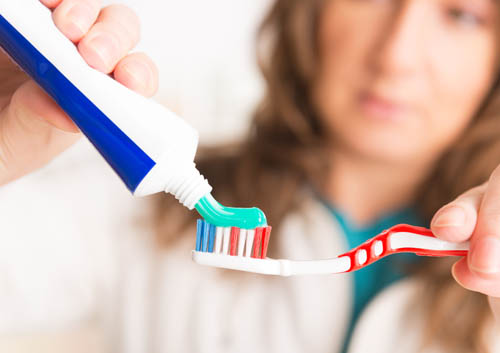
Dr. Sheklian and our staff rely on digital X-rays to help us diagnose oral conditions and process images at incredibly high speeds. You can also view digital X-rays in real time while we examine your mouth with an intraoral camera and upload the images to a software program. A chairside computer monitor lets you see these images as we refine areas of concern to ensure an accurate diagnosis.
But are dental X-rays safe?
Yes! They emit 80 percent less radiation than exposure-type X-rays and provide detailed images to improve diagnosis and treatment. We can now detect dental problems in their earliest stages without subjecting you to unnecessary radiation. The amount of radiation released by digital X-rays is “negligible,” which means the amount is so small, that it can be safely disregarded.
Safe enough for children and pregnant women, digital X-rays detect microscopic pitting in tooth enamel and other abnormalities in the oral tissues that might have remained undetected with traditional X-rays. When Dr. Sheklian and our staff discover dental caries in their earliest stages, we can initiate treatment measures that will effectively prevent cavity development, tooth decay, and potential tooth loss.
Patient appointment lengths are shortened with digital X-rays as well, because images are immediately viewable and do not require the exposure time associated with old-style X-rays.
How Digital X-Rays Differ from Traditional X-Rays
Instead of using cardboard-contained film, we insert a small sensing device about the size of a pen in your mouth and engage the digital X-ray machine by manually manipulating control buttons. Within seconds, images appear on the monitor that can later be stored in your file or sent to another doctor for further examination.
The increased resolution afforded by digital X-rays means that patients are able to understand the seriousness of their dental issues better, and are more inclined to follow through with procedures recommended by Dr. Sheklian.
Safer, Better and Faster
For detection of cancerous tumors in their early states, digital X-ray technology offers vast improvements over film X-rays because of its cutting-edge image processing capability. Early detection of oral cancer and dental caries is the best way to prevent any type of oral health problem from exceeding the treatable stage.

The third molars have long been known as your “wisdom teeth,” because they are the last teeth to erupt from the gums – usually sometime during the late teens to early twenties. This is a time in life that many consider an “age of wisdom”; hence the term, “wisdom teeth.”
Extracting the third molars does not have any effect on your actual wisdom … and Dr. Sheklian and our staff are sorry to say that holding on to them can’t make you smarter, either. So if you somehow feel that you became wiser and smarter when your wisdom teeth appeared, chalk it up to age rather than teeth.
In fact, you may just be showing how smart you are by having your wisdom teeth removed. Mankind once relied on the wisdom teeth to replace teeth that were damaged or missing, thanks to a poor diet. But dietary changes and advances in modern dentistry make it possible for many people to hold on to their teeth for many decades, which eliminated the need for third molars.
For many people, wisdom teeth cause nothing but problems: becoming impacted, irritating surrounding gum tissue, or even causing other teeth to become crooked or overlap. By removing them, patients often enjoy a lower risk of decay, infection, and aesthetic complications.
So rest assured that extracting your wisdom teeth will have no effect on your immediate or long-term intelligence.

It’s easy to be skeptical about X-rays whether we speak of a full-body X-ray or a dental X-ray. Radiation is radiation. It’s vital to know all the facts before judging too harshly, though. Dental X-rays can be one of the best preventive tools for your dental health. We offer various treatments at Squan Family Dentistry, but helping you become better informed is one of the best ways to decide what will be best for you.
According to the AmericanDental Association, healthy adults typically receive routine dental X-rays every two to three years. The timeline for children is every one or two years, and one and a half for teens. Children and teens require more X-rays than adults because their teeth are still developing, which makes them more susceptible to cavities.
In general, Dr. Sheklian will determine how often dental X-rays need to be taken for each individual patient, taking into consideration physical symptoms, clinical findings, and risk for infection. Most dental professionals use Caries Management by Risk Assessment (CAMBRA) to help them determine how often X-rays should be taken, so you can rest assured that we are making an informed decision.
In addition to that, it should be reassuring to know that these days, most dental X-rays are digital, which significantly reduces your exposure to radiation. In fact, you’re likely to pick up more radiation just from being in the sun! Lead aprons and thyroid collars are also tools that Dr. Sheklian and our team use to keep X-ray exposure to a minimum.
At our office, we believe that diagnosing cavities and other potentially harmful conditions by dental X-ray does you more good than harm. If you have any questions about our X-rays, feel free to give our Manasquan office a call or bring up the subject during your next appointment!

Toothpaste no longer comes in simple choices of fluoride and fresh breath. Paste is not even the only option! You can choose gel forms and even some with ribbons of color and flavor. With so many varieties available, it may be difficult to know which features or combinations of ingredients are best for your mouth. Dr. Sheklian and our team are here to help!
Fluoride
The majority of all dental patients should use toothpaste with fluoride. Fluoride helps to strengthen the enamel on your teeth; it makes them stronger and more resistant to cavities. Even if you live in an area that adds fluoride to your drinking water, the fluoride protection in toothpaste is necessary.
Some individuals can have an allergic reaction to fluoride. Fluorosis can occur in children or adults that swallow too much toothpaste while brushing. If swallowing cannot be prevented, fluoride use should be reduced. The American Dental Association has updated guidelines that recommend fluoride be used as soon as the first teeth erupt in children. However, the amount should be minimal and swallowing should be prevented.
Sensitivity Protection
If your teeth are sensitive to temperatures, toothpaste with sensitivity protection can work wonders for your discomfort. Ingredients in these pastes or gels work to block the pathways to the nerves that react to hot or cold. Do not give up on this type of toothpaste after a few days; the full results may take a few weeks.
Plaque, Tartar, and Gingivitis Protection
Everyone has bacteria in his or her mouth, and this bacteria is normal. Unfortunately, some bacteria also cause plaque. If the plaque remains on your teeth, it hardens into tartar or calculus. Tartar is an almost cement-like substance that cannot be removed by brushing alone. When bacteria and tartar are left behind, the deposits will form under the gum line. This leads to gingivitis and gum disease.
Since there is a wide variety of toothpastes and ingredients for preventing tartar and gingivitis, ask Dr. Sheklian and our staff what the best choice is for your teeth. We can help you select the right combination of ingredients.
Whitening
White teeth are desirable, and manufacturers are heavily marketing whitening toothpastes. Most brands do not contain bleaching ingredients; they use abrasives to polish stains away. Unfortunately, too much abrasive use can be damaging to your teeth. If you’re interested in teeth whitening, our Manasquan team can recommend a number of safe and effective options.
Feel free to ask Dr. Sheklian and our staff at Squan Family Dentistry about the best choice in toothpaste to meet your individual needs. Remember to look for the ADA approval seal on any toothpaste you are considering.